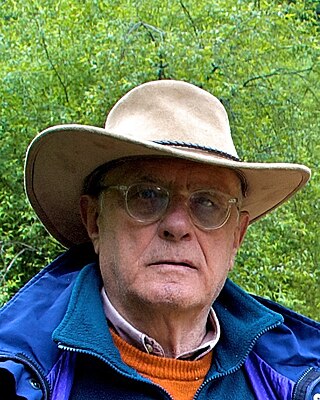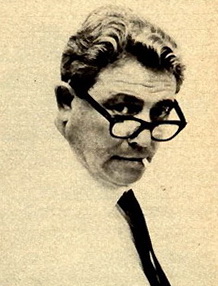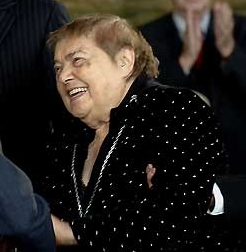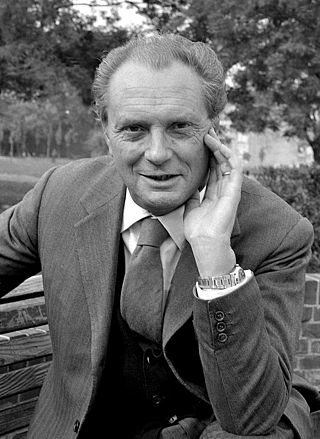
Mario Benzing (December 7, 1896 in Como – November 29, 1958) was an Italian novelist and translator of German origins, often forced to sign as Mario Benzi because of the period's fascist Italian laws. Born in Como, Italy, he settled in Milan.

Mario Benzing (December 7, 1896 in Como – November 29, 1958) was an Italian novelist and translator of German origins, often forced to sign as Mario Benzi because of the period's fascist Italian laws. Born in Como, Italy, he settled in Milan.
During the First World War, he enlisted in the Italian Army Medical Corps and in Milan he made the acquaintance of Ernest Hemingway.
Between the two World Wars he wrote several novels and biographies of historical figures in Italian. These figures included Messalina, Cleopatra and the Queen Christina of Sweden. As a literary translator from English, German and French, he specially devoted his work, often as first Italian translator, to Rudyard Kipling, Joseph Conrad (first Italian translation of The Shadow Line in 1929), Jack London (first Italian translation of The Mutiny of the Elsinore in 1928), Arthur Schnitzler, Lewis Carroll, D. H. Lawrence (first Italian translation of The Rainbow in 1937), P. G. Wodehouse, Edgar Wallace, Hugh Walpole, Edgar Allan Poe, Vicki Baum, H. G. Wells (first Italian translation of The World of William Clissold in 1931), Ernst Theodor Amadeus Hoffmann, Ehm Welk, Eduard von Keyserling, Jakob Wassermann, Joseph Hergesheimer, Robert Louis Stevenson, Helen Hunt Jackson, Sigrid Undset, Edgar Rice Burroughs, Guy Boothby, William Le Queux, Sax Rohmer, Rose Macaulay, Richard Marsh, Alice Muriel Williamson and many others, showing a special sensitiveness in translating original poems in Italian verses.
William Tyndale was an English biblical scholar and linguist who became a leading figure in the Protestant Reformation in the years leading up to his execution. He is well known as a translator of most of the Bible into English, and was influenced by the works of prominent Protestant Reformers such as Martin Luther.

Luchino Visconti di Modrone, Count of Lonate Pozzolo was an Italian filmmaker, theatre and opera director, and screenwriter. He was one of the fathers of cinematic neorealism, but later moved towards luxurious, sweeping epics dealing with themes of beauty, decadence, death, and European history, especially the decay of the nobility and the bourgeoisie. Critic Jonathan Jones wrote that “no one did as much to shape Italian cinema as Luchino Visconti.”

Richard Aldington was an English writer and poet. He was an early associate of the Imagist movement. His 50-year writing career covered poetry, novels, criticism and biography. He edited The Egoist, a literary journal, and wrote for The Times Literary Supplement, Vogue, The Criterion, and Poetry. His biography, Wellington (1946), won him the James Tait Black Memorial Prize.

Como is a city and comune in Lombardy, Italy. It is the administrative capital of the Province of Como.

Eugenio Montale was an Italian poet, prose writer, editor and translator, recipient of the 1975 Nobel Prize in Literature and one of the finest literary figures of the 20th century.

Bellagio is a comune (municipality) in the Province of Como in the Italian region of Lombardy. It is located on Lake Como, also known by its Latin-derived name Lario, whose arms form an inverted Y. The triangular land mass at the base of the inverted Y is the Larian Triangle: at its northern point sits Bellagio, looking across to the northern arm of the lake and, behind it, the Alps. It has always been famous for its location. It belongs to a mountain community named Comunità montana del Triangolo lariano, based in Canzo.
Fascio is an Italian word literally meaning "a bundle" or "a sheaf", and figuratively "league", and which was used in the late 19th century to refer to political groups of many different orientations. A number of nationalist fasci later evolved into the 20th century Fasci movement, which became known as fascism.

Charles Godfrey Leland was an American humorist and folklorist, born in Philadelphia, Pennsylvania. He was educated at Princeton University and in Europe.

Mario Biondi is an Italian writer, poet, literary critic, journalist and translator. His reputation is mainly due to the novel Gli occhi di una donna, which earned him the important Italian award Premio Campiello in 1985. He has a keen interest in Central Asia and Tibetan history and culture, and in recent years has travelled all of the Silk Road through Turkey, Iran, Uzbekistan, Kyrgyzstan, Pakistan and many provinces of China, among which Gansu, Shaanxi, Sichuan, Qinghai and obviously Xizang (Tibet).

Giovanni Luigi "Gianni" Brera was an Italian sports journalist and novelist.

Fernanda Pivano was an Italian writer, journalist, translator and critic.
—Closing lines of "Easter, 1916" by W. B. Yeats

Vittorio Sereni was an Italian poet, author, editor and translator. His poetry frequently addressed the themes of 20th-century Italian history, such as Fascism, Italy's military defeat in World War II, and its postwar resurgence.

Andrea Maffei was an Italian poet, translator and librettist. He was born in Molina di Ledro, Trentino. A follower of Vincenzo Monti, he formed part of the 19th-century Italian classicist literary culture. Gaining laurea in jurisprudence, he moved for some years to Verona, then to Venice and finally to Milan, where in 1831 he married contessa Clara Spinelli. They separated by mutual consent on 15 June 1846.

Hispanism is the study of the literature and culture of the Spanish-speaking world, principally that of Spain and Hispanic America. It may also entail studying Spanish language and cultural history in the United States and in other presently or formerly Spanish-speaking countries in Africa, Asia, and the Pacific, such as Equatorial Guinea and the former Spanish East Indies.
Luigi Veronesi was an Italian photographer, painter, scenographer and film director born in Milan.

War and the Future (1917) is a work of war propaganda by H. G. Wells that was published in North America under the title Italy, France, and Britain at War. Wells would have preferred the title The War of Ideas, but his publisher over-ruled him. Except for the opening piece, its chapters were published as articles in the press. Though proclaiming early in the volume that "I avow myself an extreme Pacifist," Wells staunchly supported Britain's war against Germany "in the hope that so we and the world may be freed from the German will-to-power and all its humiliating and disgusting consequences henceforth for ever."

Giorgio Orelli was an Italian-speaking Swiss poet, writer and translator.
Archibald Colquhoun (1912–1964) was a leading translator of modern Italian literature into English. He studied at Ampleforth College, Oxford University, and the Royal College of Art. Originally a painter, he worked as director of the British Institute in Naples before the Second World War, and in Seville after the war. He worked in British intelligence during wartime. He later headed Oxford University Press' initiative to bring out Italian literary classics in translation. He scored his biggest success with Lampedusa's The Leopard, a translation that is still in print. He was also one of the first translators to introduce Italo Calvino to Anglophone readers. He was the first winner of the PEN Translation Prize, which he won for his translation of Federico de Roberto's The Viceroys. He also wrote a biography of Alessandro Manzoni.